There’s not been a game that nails the feeling of loneliness like Stalker 2. A vast and challenging open world sci-fi RPG from GSC Game World, it stands alone in its ambitious exploration of a perilous, ruined landscape plagued by greed and unflinching peril. A theme park to some and a fresh hell for others, Stalker 2 excellently portrays the grim reality of trying to carve a life out of struggle, wrestling with the weird and the paranormal.
It is a shame the game was impaired by bugs during my playthrough, though perhaps there is no better indicator of its status as a legitimate successor to the Stalker mantle than crashes, busted side quests, and broken notes left unreadable due to some technical spaghettification.
To see this content please enable targeting cookies. Manage cookie settings
The game places you in the shoes of Skif, a man whose home is destroyed due to a sudden appearance of anomalous shenanigans outside the boundaries of The Zone. This spurs him to enter The Zone alone, to try and take back his future like so many Stalkers before him, and maybe discover why this tragic accident happened in the first place.
Over the next 40 hours (at least) he’ll find himself at the centre of potentially world-changing events, delving headfirst into The Zone’s mysteries, and drinking approximately 25 energy drinks-per-hour without exhibiting any health problems whatsoever. Maybe proximity to The Zone makes us all a little anomalous, right?
The Stalker series has earned a reputation for its difficulty, and in Stalker 2 this manifests in two forms: one I like, one I don’t. The first is a practice of resource management and risk-taking. The Zone is littered with ample ammunition, bread, grenades, more bread, delicious energy drinks, precious healing items, and more bread. If you’re like me you’ll start the game grabbing everything, a practice Stalker 2 will beat out of you.
It’s surprisingly easy to find yourself overencumbered. What do you mean I’m holding 6KG of sausage? How could this ammo I’m not using be this heavy? What do you mean it’s my fault I have 50 bandages in my bags?
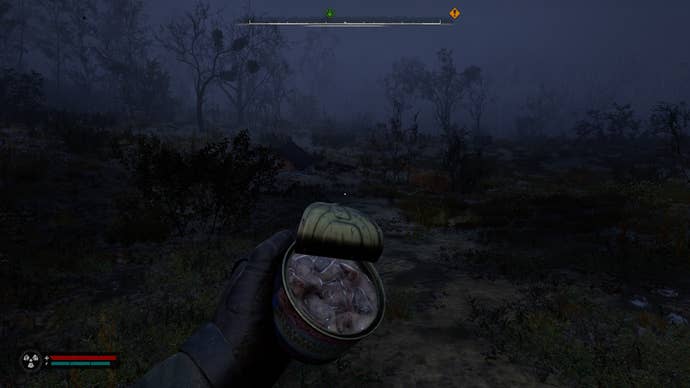
So, naturally, you slay your inner loot goblin and grab only what you need, and cut down on the bread in the hopes of a low-carb life with a fast move speed and uncluttered backpack. But then you run into an area and are confronted with a Chimera, or a Psi-dog, or three Bloodsuckers. Suddenly you’re burning through ammo, you’re out of good healing items, and the taste of bread is naught but a sweet memory. If only I had looted more bread!
What this does is force you to prepare, to take things slow. Sure, you can run and gun through The Zone, dashing into anomalies while your podcast is blaring and throwing healing items away, but you’re punished for it. Stalker 2 is a game of slow, gradual wins. Clearing the map, building up a wealth of spare goodies in your stash, building a nice nest egg of Coupons for a raining day, and heading out prepared. I even walked back five minutes into town when I realised I was under-stocked once. Me? Retreating from a challenge? A testament to the game’s artisanally-crafted difficulty, clearly.
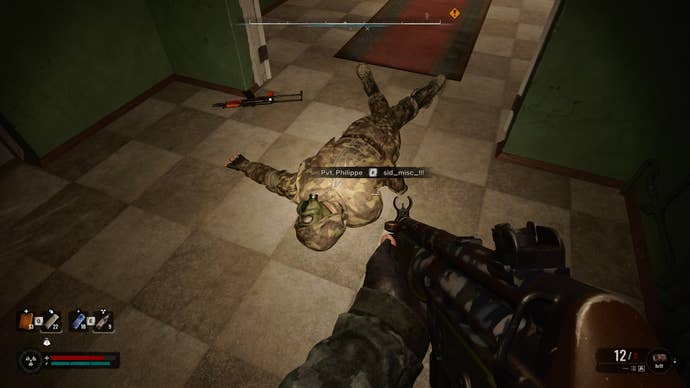
There are, however, spikes. Quite naughty ones at that. You may know what a Psuedogiant is, but what you’re not familiar with is a Chimera. These bullet sponge, two-headed, leaping monsters have a tendency to pop up at the worst times, are faster than you, and have a seemingly infinite aggro range.
You must fight them if you see them, and while there is no shame in jumping on top of a box and blasting away all your ammo, they can (and will) combo you from 100% health to zero. I shall not spoil the events leading up to the worst one, but if you see a train tunnel after a main mission, brace yourself. There is one especially tricky fight that I believe leans over to the frustrating side of things, but it’s story-related, so I’d rather die than spoil it for you.
What a wonderful segue… The main narrative in Stalker 2 is fantastic. Filled with intriguing twists and turns, revelations, thrilling action, and believe-it-or-not some stellar character performances. As per the iron-clad conditions of this review set out by the publisher, I can’t point to any one narrative moment that stole the show, but I wouldn’t anyway since I was taken aback by various moments in the story.
Characters I assumed were one-dimensional genuinely flipped my expectations on their head. You’ll sit up and prepare yourself for a show whenever the gameplay transitions into in-game cinematics.
The story is, also, quite long. Reviewers were told by the developers upon receiving a code that the main story alone takes 30-40 hours, to which I was sceptical. I believed that this number surely took into account a healthy serving of exploration. I was totally wrong. At around the 15 hour mark, I had only explored three of the regions. The next 15 hours was spent entirely focused on the main story with little to no exploration. This is a game you can gorge on.
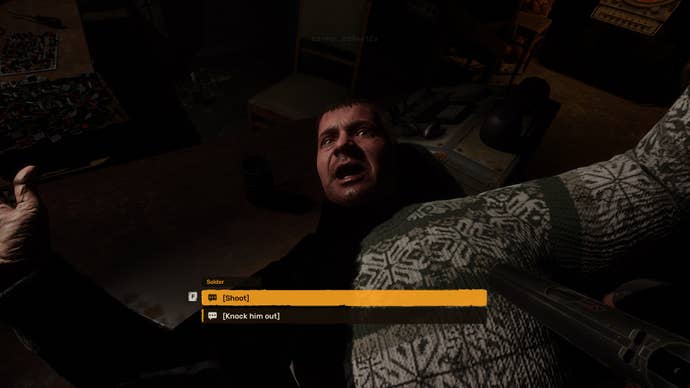
On this note, I’d absolutely recommend not focusing just on the story. You’ll miss out on cool side quests dotted around the map, cool gear, and tons of artefacts. Not to mention, certain side quests will become uncompletable at certain points in the story. So, once you enter a region, totally finish up and quests there before moving on for the best experience. There’s an RPG locked behind a door and I don’t know how to open it. Devastating.
One final note on the narrative; I was giddy when it became clear to me that story decisions I made actually mattered. I’m not talking about some final cinematic changes as a lone sign of your deeds, I’m talking forks in the story that diverge pleasantly. Quest items you can only get by siding with a faction, that makes certain things easier. Main characters noting your allegiances.
I sided with The Ward – the game’s military police that stand philosophically, and sometimes literally, opposed to native factions in The Zone – and riding that cop train as far as it goes was ripe with merit and interesting moments. The Stalker series has taught folks that things aren’t always black and white, and Stalker 2 maintains that legacy elegantly.
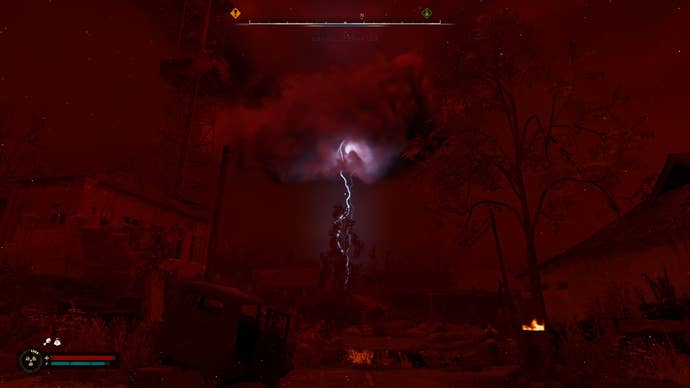
Another reason to explore is the world of Stalker 2 itself, which is gorgeous in both looks and vibe. Some may disagree with me here: they may find themselves bored of trees and green hills. But look beyond the general landscape of The Zone and you’ll find a rich landscape dotted with haunting ruins, a legacy of civilisation overcome by both metaphysical incursions and the conquest of time.
Even in the initial region, The Lesser Zone, places like The Poppy Field, The Ribs, and the Bulba stand in stark contrast to the regular. Later on, places like The Swamp and the Red Forest show the extent of how The Zone can morph and transform the world, for better and worse.
I’m also in love with the settlements. These aren’t just ramshackle towns, but sometimes sprawling homes for The Zone’s population, each with their own style and character. People live in old factories, ruined ships, and tunnels. Some live in squalor while others reside in clean structures with sick bars and (gasp) working elevators. I, personally, made my den in a settlement in the Chemical Plant because I’m a bougie boy who loves the fictional cops, but I can’t deny my heart longs for the best bar in the game, just a little trip north.
What I’m saying is that the world building is strong, be it environmental storytelling throughout the various landmarks, the rad Ukrainian music playing on the radio, or the little moments of respite you find along the way. I sat down by a fire with a random Stalker in The Lesser Zone. He wasn’t an important NPC or anything, he was just a guy, and we became close friends in a matter of seconds. Then, a pack of dogs spawned and mauled him to death moments later. I looted some sausage off his body and moved on, distraught and utterly sold on the whole tone from there on out.
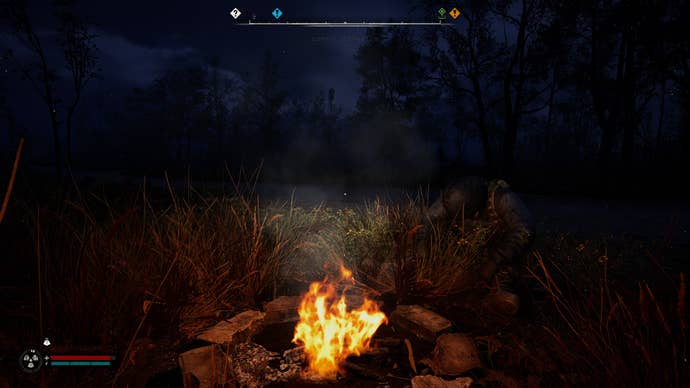
This all might sound as glowing as background radiation poisoning, and it is, but the game is not without its problems. I opened the article with a reference to the game’s bugs, and I did encounter a fair number, ranging from funny distractions, to crashes, to disastrous quest-halting schisms.
Many of the smaller bugs have been fixed in the days leading up to launch: dead bodies flying skyward and pulling cartwheels before vanishing on the horizon, gunfire sounds on your weapons vanishing completely when you stop using your personal PDA. Some remain though, like allied NPCs standing in doorways during fights, unmoving and rooted like an oak tree regardless of how often you push against them. And the act of killing them failing quests forever. Uh oh.
I didn’t run into any serious crashes until 25 hours in, though there was a spot in The Lesser Zone that lagged heavily that has now been fixed (from what I can tell). This crash happened when I opened the map during an ’emission’ – a map-wide event that forces you inside or has you face certain death. Not only did I have to close the game via the task manager, I had to restart my PC completely. The autosave file in that spot then could not be loaded without an instant crash.
Those smaller bugs, while grating, aren’t the biggest deal in the world, and required only a loaded save to circumvent. However, later in the game I ran into some really bad ones. There is a side quest that I won’t spoil, but it involves defending a settlement. One NPC asks you to take out some enemies nearby, and this guy is essentially an AOE soft lock. It doesn’t matter if you help him, ignore him, or even let him die! No matter what happens, the game locks you into a dialogue you must Alt F4 out of.
This meant I had to ignore the side quest altogether, which had horrendous ramifications for the region. This bug was reported, so I can only hope it’s fixed. If it’s not, it’s a real sore spot on the game.
Now, Stalker is no stranger to bugs, and what I can say is that there have been waves of bug fixes during the review period that have removed a lot of the smaller problems. On top of that, a Day Zero patch went into effect a day prior to this review’s publication. I’ve jumped in and noticed an impact, sure, but at the same time I can’t review a version of the game I’ve not seen.
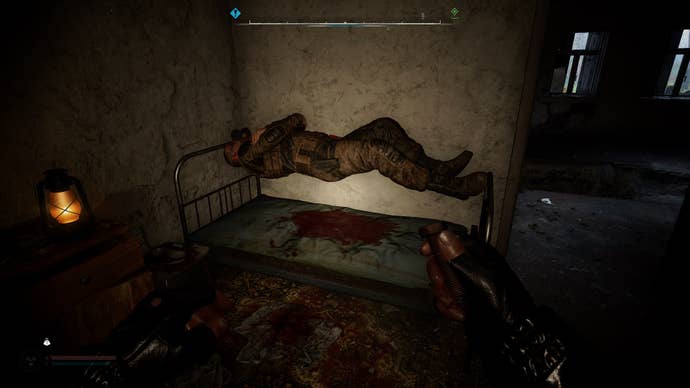
What I would recommend for players is to take your time going through the game, as these quickfire fixes do point to a collective effort to patch things up, and there’s hope that by the time you reach some of my rough moments it’ll be working as intended.
If not, the Stalker series has a rich history of community-led mods that fix multitudes of problems. If bugs are a real prohibiting factor for you, keep tabs on the community’s experience in the coming days and maybe hang back for a week or two.
In spite of these problems, I loved my time with Stalker 2. It says a lot that even with a bug that would otherwise push me away from a game like this, I continued playing – perhaps a little bummed out, yeah, but still eager to see more.
It’s a game created under extraordinarily shitty circumstances, with Russia’s invasion of Ukraine forcing much of the staff to leave the country while their peers either stuck it out among their family or signed up the war effort.
Making games is hard, regardless, and the fact that the team was able to put together a package like this that’s so earnest, so passionate in its revisit of a world enshrined in PC gaming’s history, is more than impressive. It’s an admirable feat that I hope isn’t lost on the general gaming crowd who don’t know too much about the games outside of their time playing them.
I would recommend Stalker 2 to fans of the Stalker series, obviously, and as anyone with a love of open world FPS games and distinct sci-fi. The good thing is it’s available on Game Pass, so you can pay less than full price and try it out.
Now, if you don’t mind, I’ve got three loaves of bread to eat and about a dozen energy drinks waiting for me.
This review is based on a PC build of Stalker 2, with code provided by GSC Game World.
function appendFacebookPixels() { if (window.facebookPixelsDone) return; !function(f,b,e,v,n,t,s) {if(f.fbq)return;n=f.fbq=function(){n.callMethod? n.callMethod.apply(n,arguments):n.queue.push(arguments)}; if(!f._fbq)f._fbq=n;n.push=n;n.loaded=!0;n.version='2.0'; n.queue=[];t=b.createElement(e);t.async=!0; t.src=v;s=b.getElementsByTagName(e)[0]; s.parentNode.insertBefore(t,s)}(window, document,'script', 'https://connect.facebook.net/en_US/fbevents.js');
fbq('init', '1749355691872662');
fbq('track', 'PageView'); window.facebookPixelsDone = true;
window.dispatchEvent(new Event('BrockmanFacebookPixelsEnabled')); }
window.addEventListener('BrockmanTargetingCookiesAllowed', appendFacebookPixels);
Source link
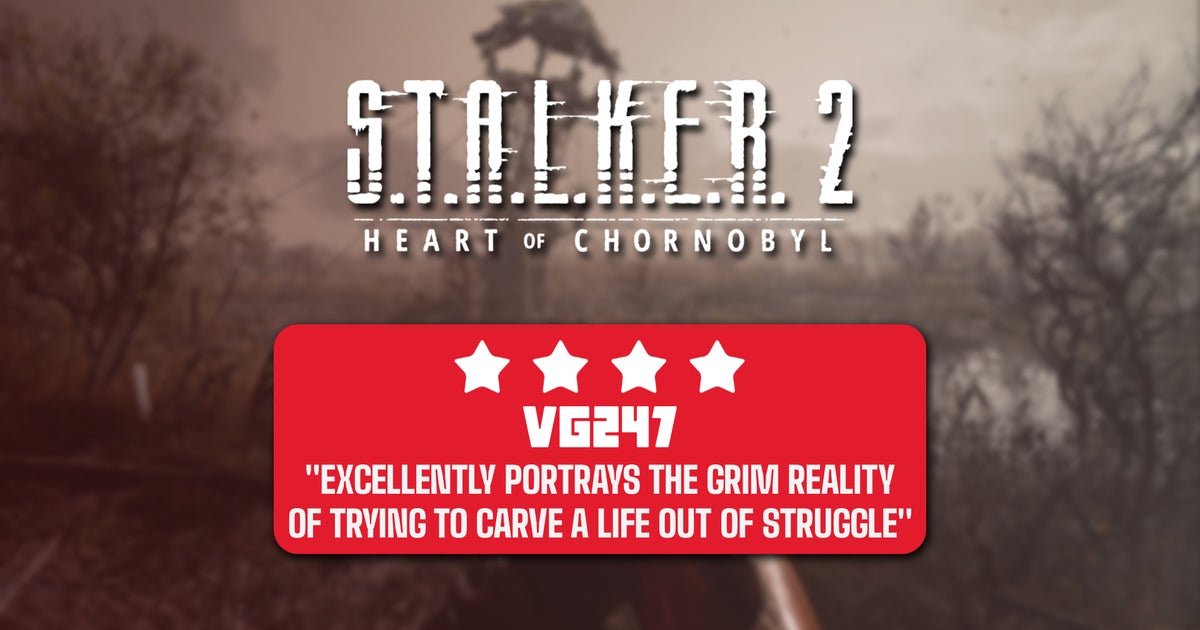











Leave a Reply